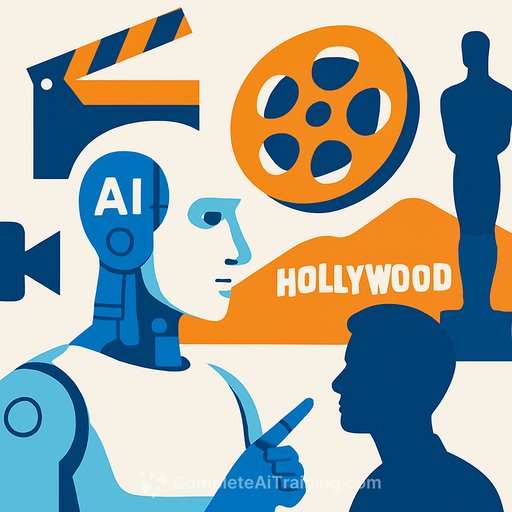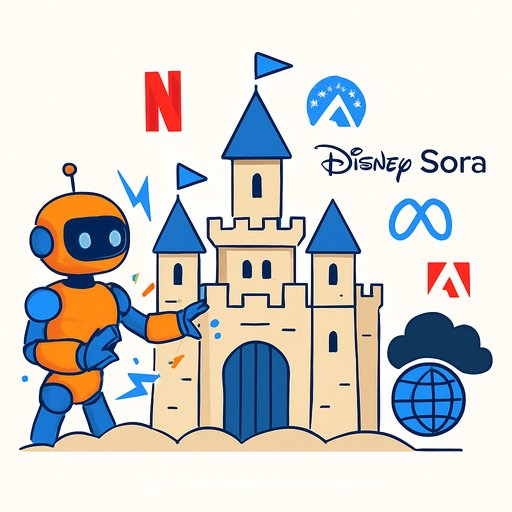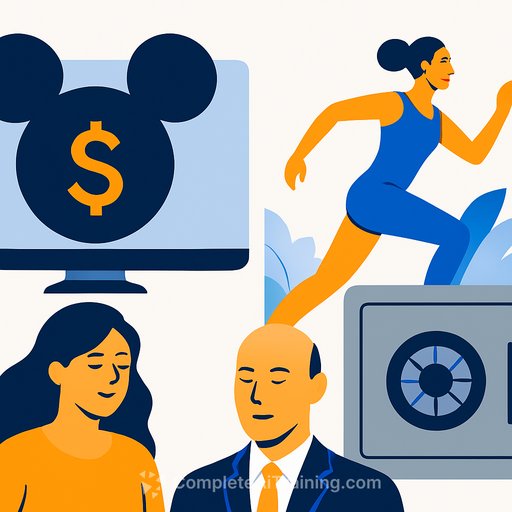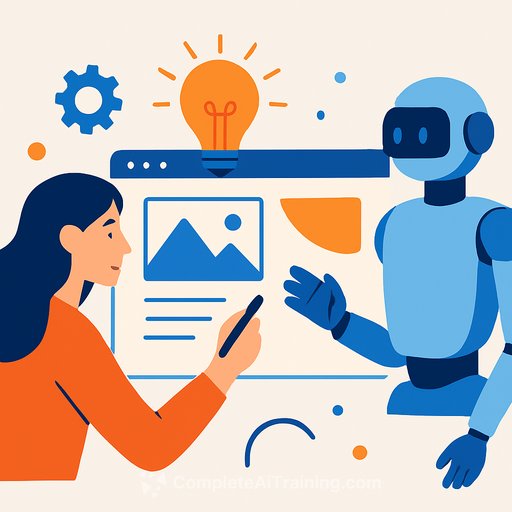WIDE ANGLE: THE SHAPE OF THINGS TO COME
Netflix’s recent use of generative AI to create a building collapse scene in the sci-fi show El Eternauta highlights a significant shift in how visual effects are produced. This marks the streamer’s first official use of text-to-video AI in final footage, completing the sequence 10 times faster than traditional methods. But beyond speed, it raises a deeper question: when audiences know AI created their entertainment, does it affect how authentic they perceive it to be?
The move from traditional CGI to generative AI is the biggest change in visual effects since computer graphics replaced physical effects. Traditional VFX involves teams of artists building 3D models, setting lighting, and animating scenes frame by frame—a process that can take weeks. Even with CGI, artists program every digital element and manually key-frame movement.
With generative AI, artists describe scenes in text, and algorithms generate full sequences almost instantly. This changes the craft from building individual pieces to having a creative dialogue with technology. But it also sparks concern: is this a new tool or a replacement for human creativity?
Efficiency Meets Creativity
The building collapse scene in El Eternauta shows the power of AI-driven text-to-video generation. What once required months of work was done in a fraction of the time. This shift is driven by economics as much as creativity. The text-to-video AI market is expected to reach $1.77 billion by 2029, fueled by industry-wide budget cuts since 2022.
Traditional VFX can cost thousands per minute, with average budgets hitting $33.7 million per film in 2018. Generative AI could reduce costs by 10% across media and up to 30% in TV and film. This makes complex visuals accessible to independent creators but also threatens jobs. The OECD reports 27% of global jobs face high automation risk due to AI, while many VFX artists already work unpaid overtime and lack benefits.
Power Versus Precision
AI gives filmmakers new visual tools but reduces the fine control that defines directorial vision. Director Ascanio Malgarini spent a year on an AI-generated short film, Kraken, using tools like MidJourney and Runway. He found full control “out of the question,” working more like an editor assembling footage than directing precise shots.
Art audiences also show a clear preference for original works over AI-generated copies once they know the source. A Frontiers in Psychology study found people preferred AI art when unaware of its origin, but once told it was AI-made, they rated it lower in authenticity and creativity.
Hollywood’s AI Challenges
AI advances are outpacing regulation. The US lacks comprehensive federal laws for AI use in entertainment. Legislation like the Generative AI Copyright Disclosure Act has stalled, leaving creators exposed as AI systems train on copyrighted material. The UK is exploring an “opt-out” system to let creators block their work from AI training.
The 2023 Hollywood strikes reflected fears of AI replacing writers and actors. Screenwriters secured protections against AI writing or rewriting scripts, and actors gained consent rights over digital replicas. However, VFX workers remain vulnerable with fewer protections.
Legal battles are intensifying. Disney and Universal sued Midjourney in June 2025, accusing it of infringing copyrights by training on copyrighted characters without permission. Courts have issued mixed rulings on AI copyright issues, reflecting ongoing uncertainty.
The industry faces a gap between AI capabilities and workforce readiness. Nearly all VFX artists report no AI training, and many see this as a barrier to adoption. Without clear regulation and training, the entertainment industry risks falling behind as technology moves ahead.
As AI becomes more embedded in content creation, creatives must consider not only economic shifts but also how audiences perceive authenticity. This will shape the future of storytelling and the value placed on human creativity in entertainment.
For creatives looking to adapt, exploring AI skill development is essential. Resources like Complete AI Training's latest courses offer practical ways to stay ahead in this changing landscape.
Your membership also unlocks:






